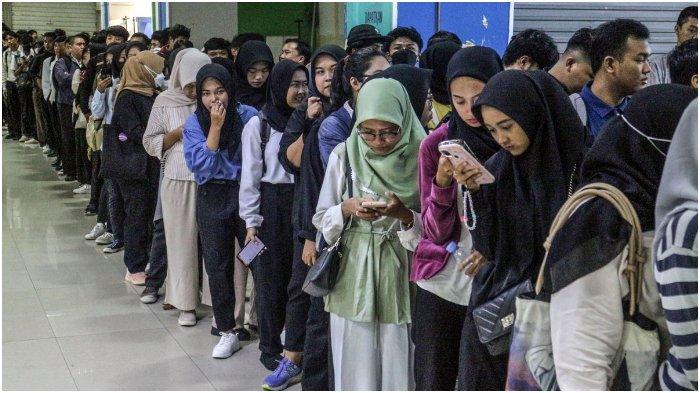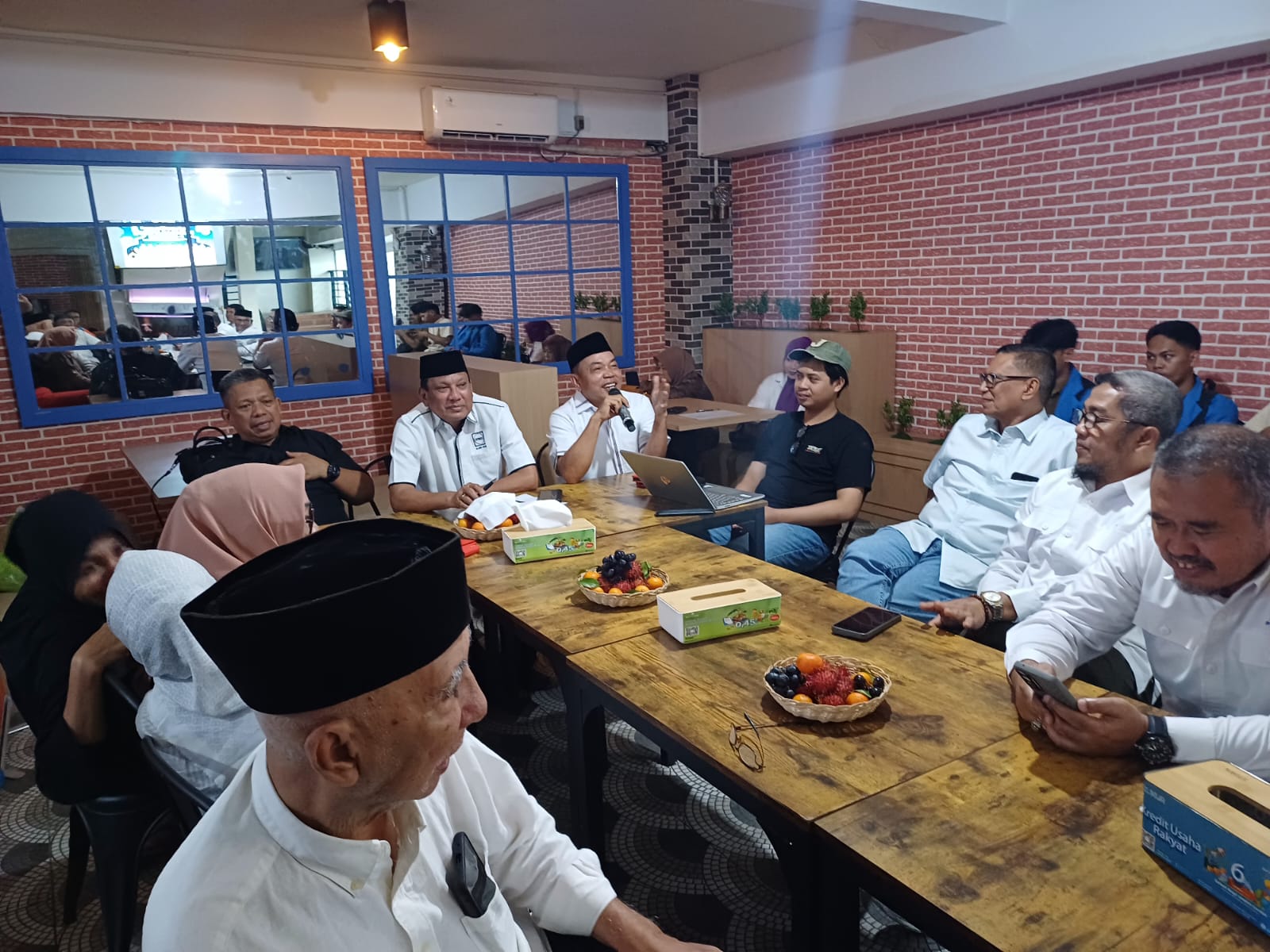APINDO Offers Solutions to Tackle Unemployment in South Sulawesi, Urges Citizens Not to Rely Solely on the Job Market
Wednesday, 07 May 2025
MAKASSAR – The rising unemployment rate in South Sulawesi (Sulsel) continues to frustrate job seekers, who not only struggle to find employment but also face mounting mental stress due to perceived unfair recruitment processes.
According to data from Statistics Indonesia (BPS), as of February 2025, the number of unemployed in South Sulawesi reached 238,800 individuals.
Chairman of the Indonesian Employers’ Association (APINDO) South Sulawesi, Suhardi, expressed concern over the rising figures. Compared to February 2024, unemployment has increased by 3.97 percent, or 8,123 people.
Suhardi attributed the issue to the continuous increase in the labor force each year, while company capacity remains limited.
"This situation is further exacerbated by an economy that is far from stable,” Suhardi told Tribun-Timur.com on Tuesday (May 6, 2025).
He warned that unemployment will continue to rise unless it is met with economic growth and improved corporate performance. Businesses, he said, are currently adopting a “wait and see” approach amid economic uncertainty.
Suhardi urged the government to improve the quality of education and skill alignment for future workers. “Education must match labor market needs. Universities should steer students toward skills that are in demand,” he stated.
He also emphasized the importance of government support for Micro, Small, and Medium Enterprises (MSMEs).
Most importantly, he called on citizens to develop an entrepreneurial mindset rather than relying solely on formal employment. “Entrepreneurial spirit must be cultivated. We should not depend entirely on the job market,” he stressed.
Hotel Industry Under Pressure: Occupancy Rates in Sulsel Decline Sharply
Star-rated hotel occupancy rates in South Sulawesi dropped to 29.52 percent in March 2025—a significant decline of 15.81 percentage points from February 2025’s rate of 45.33 percent.
This data was presented by Aryanto, Head of BPS Sulsel, during a press conference broadcast via YouTube on Monday (May 5, 2025).
Compared to March 2024, occupancy rates were down by 7.90 percentage points from 37.42 percent.
The most substantial decline was seen in three-star hotels, which experienced a 22.00-point drop from February 2025, and a 22.83-point drop year-over-year.
In March 2025, one-star hotels recorded an occupancy rate of 20.30 percent, while two-star hotels reached 32.44 percent. Though still falling, these categories experienced less severe declines than their higher-tier counterparts.
Four- and five-star hotels recorded an average occupancy of only 28.07 percent in March 2025—a significant drop compared to February.
Overall, these figures highlight the challenges faced by the hospitality sector in South Sulawesi, despite potential contributions from tourism trends.
Average guest stay duration also decreased, with guests staying an average of 1.51 nights in March 2025, down from 1.53 nights in February.
Foreign guests stayed an average of 2.56 nights, while domestic guests averaged 1.49 nights—demonstrating a notable disparity in stay duration.
Aryanto noted that these trends could be influenced by a range of factors, including shifts in travel preferences and tourism destinations.
South Sulawesi’s Unemployment Reaches 238,000; Job Seekers Frustrated by Insider Hiring Practices
Unemployment continues to climb in South Sulawesi, leaving many job seekers disheartened.
In addition to difficulties in securing employment, many complain about opaque recruitment processes that they believe favor insider candidates, intensifying the psychological strain.
BPS data from February 2025 shows a 3.97 percent rise in unemployment from the previous year, an increase of 8,123 individuals.
Rahmat (25), a job seeker from Pinrang, said he has applied to numerous companies without success. “I’ve submitted applications to many companies, but haven’t received any calls. We need government support to improve our skills,” he said.
He voiced frustration with what he described as non-transparent hiring practices, claiming that qualifications alone are insufficient since many companies appear to pre-select candidates before public job postings.
“It’s not just about qualifications. Nowadays, you also have to compete with insiders. Many recruitment processes seem to be formalities only,” he stated.
Similar sentiments were echoed by Nurul (25) from Makassar, who said she feels discouraged during job applications after repeatedly hearing that positions were already filled before selections took place.
“Many of my friends have had the same experience. They take the tests, but never hear the results. Sometimes there’s no announcement at all, or the outcomes don’t make sense. We need a fair recruitment system,” Nurul said.
This lack of transparency, especially for fresh graduates without professional networks, is seen as a contributing factor to rising unemployment.
During the same press conference, Aryanto from BPS Sulsel stated that the total number of unemployed in the province has reached 0.24 million, up by 8,123 people from the previous year.
The working-age population in Sulsel grew to 7.30 million by February 2025, an increase of 100,320 compared to February 2024.
Of that total, 4.82 million were part of the labor force, while 2.48 million were not.
Among those in the labor force, 4.58 million were employed, while 0.24 million were unemployed.
The labor force grew by 108,410 over the year, with the number of employed persons rising by 100,290 and the unemployed increasing by 8,120.
The Labor Force Participation Rate (LFPR) in February 2025 was 65.99 percent, a 0.59 percentage point increase from February 2024. The LFPR reflects the level of economic activity among the working-age population.
By gender, the LFPR for males stood at 81.74 percent, while for females it was 50.72 percent. Compared to the previous year, male participation rose by 0.30 percentage points and female participation increased by 0.85 points.
Source: makassar.tribunnews.com








